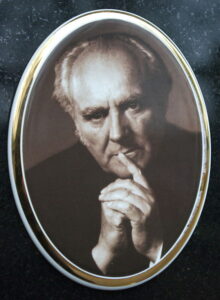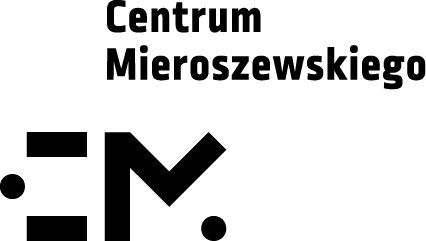
Photograph of Fr Zdzislaw Peszkowski at his family tomb in Sanok. Wikimedia Commons. Author: Lowdown. Licence: CC BY-SA 3.0
“Here, in Sanok, everything began for me, both life and education, scouting, and my later history, connected with the Golgotha of the East”, said Fr Peszkowski years later. Fighting for the remembrance of the Katyn Massacre was his mission, which he fulfilled until the end of his days.
He was born on 23 August 1918 in Sanok. During his school years, he was a member of the Polish Scouting Association. In 1938, he enrolled in the Cavalry Officer Cadet School in Grudziądz.
During the September campaign of 1939, he fought in the 20th Jan III Sobieski Cavalry Regiment. After the Soviet aggression against Poland, he was taken prisoner and eventually sent to the NKVD camp in Kozielsk. In April, the Polish prisoners of war held there began to be transported to a forest near Katyn, where they were successively murdered. As he recalled, he did not share the fate of the more than 20,000 who were murdered as he found himself – probably thanks to the intercession of the artist-painter Vlastimil Hofman, who was in Moscow at the time – in the last of the transports, which was formed on 12 May 1940. This was because the last transport was not sent to Katyn, but to the camp in Pavlishchev Bor, and then to Griazovets.
After the signing of the so-called Sikorski-Mayski Agreement, he joined the Polish Army, which was being formed under General Władysław Anders. He reached the rank of captain and commanded a company in the 1st Krechowiecki Cavalry Regiment. An order in 1943 directed him to work with Polish youth evacuated from the USSR. So, he worked in Iran, Palestine, East Africa and India. He ran Polish schools and scouting.
After the war, he remained in exile and went to the United States, where he discovered his priestly vocation. He was ordained on 5 June 1954. He served as chaplain of the Polish Scouting Association abroad and chaplain of the Katyn Families.
In 1990, he returned to Poland and quickly became involved in commemorating the Katyn Massacre. He stressed that “there was no Nuremberg for Katynism and for the criminals from the East” adding that “no one has accounted for this crime”. Fr Peszkowski was the author of many publications about Katyn. At the same time, he worked for Polish-Russian reconciliation. He died in Warsaw on 8 October 2007.



